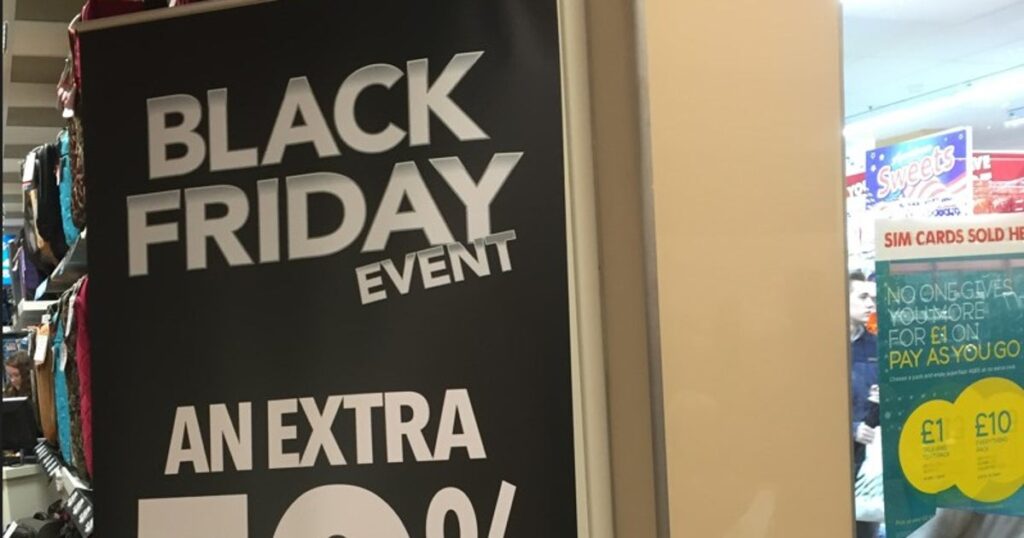
£167 million worth of video game consoles, accessories and physical games were sold over the Black Friday week in the UK, GfK reveals.
It’s the third biggest Black Friday for video games so far. It’s only beaten by Black Friday 2013 and Black Friday 2020, which both coincided with the launch of a PlayStation console (PS4 in 2013 and PS5 in 2020).
The UK physical video games market saw a revenue jump of 22% compared with last year’s event. 47% of that revenue came from console sales, whereas just 40% of Black Friday 2022 revenue came from console hardware.
In terms of where customers bought these products, 82% of Black Friday video game sales were via online retailers, which matches 2022’s number. In 2020, online share was 88% due to the second COVID-19 lockdown that occurred around the same time.
In terms of consoles, hardware sales were up 34% over Black Friday 2022, and this was driven by the Playstation 5. PS5 was in limited supply in 2022, and as a result PS5’s Black Friday performance is 217% up compared with the year before.
It was the second biggest sales week for Switch, PS5 and Xbox Series S and X sales since all three consoles were on the market. The previous biggest was the launch week of PS5, which was also Black Friday and the second week of Xbox Series S and X.
PlayStation may grab the headlines, but it was still a strong week for Xbox Series S and X, which managed to match its Black Friday performance from last year. Overall, Black Friday 2023 was the third biggest week yet for Xbox Series S and X console sales.
Over in accessories, and it was the biggest Black Friday yet for peripherals sales, GfK reveals. This was driven by strong sales of VR headsets, joypads and gaming headsets.
“VR was in the spotlight over Black Friday 2023 and this was the biggest ever revenue week for VR” says GfK games boss Dorian Bloch.
“Gaming Headsets show a similar picture to joypads, with a reverse on units and slight revenue increase,” Bloch concludes. “For headsets, the under £60 category grew 5% points to 45% of overall revenue and this segment actually saw an average selling price increase from £25 to £29. At the same time the over £100 category took 26% of revenue in both time periods, but the average selling price grew from £139 to £156, which confirms a trend that has been happening for a long time – namely that the premium end of the market is highly prized by consumers, willing to trade upwards to higher priced SKUs.”